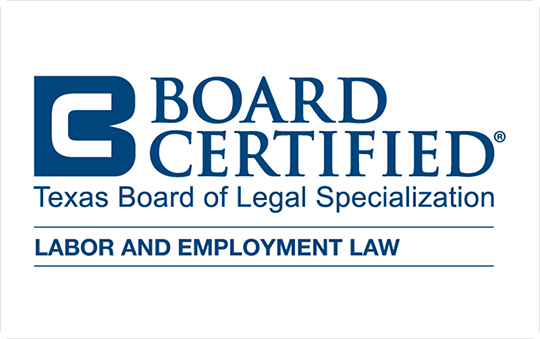A common question after a loved one dies is: “Will I need to probate the Will?” The usual reason for probating a Will is your loved one’s estate needs administration. The usual reasons for administration include:
- Gathering the decedent’s assets;
- Distributing assets to the decedent’s beneficiaries according to the Will;
- Accepting and paying creditor’s claims; and,
- Paying taxes.
Probate is the method for a court to accept the Will and appoint an Independent Executor, who is authorized by Letters Testamentary to gather and distribute assets, accept and pay claims, and file and pay taxes.
Although probate is a quick and inexpensive process when your loved one left a Will, the Texas Estates Codes authorizes alternatives to formal estate administration. These alternatives are only available when a court determines there is no need for the administration of the estate. The alternatives to probate include:
- Muniment of Title
- Determination of Heirship,
- Small Estate Administration
Muniment of Title:
Muniment of Title doesn’t only sound strange; many haven’t heard of it, and this includes lawyers, bankers, and a few realtors. A Muniment of Title proceeding is available when the decedent had a Will and there are no unpaid debts owed by the decedent’s estate except for debt secured by liens on real property. This alternative is available because there is no need for estate administration.
This proceeding begins with an applicant’s limited application to the court. The application requests the Will be admitted to probate as a Muniment of Title only. The application doesn’t request Letters Testamentary and it states there are no unpaid debts other than those secured by liens on real property. The applicant must file the application within 4 years of the decedent’s death. The Will is probated, but the court does not appoint an executor and there is no administration of the estate. The proceeding provides the beneficiaries under the Will with proof of ownership according to Will’s bequests.
This procedure is useful in a few situations. It is useful when the Will fails to name an executor, or the Will names an executor, who is dead, who is disqualified, or who refuses to serve, and there is no living and qualified alternate executor named in the Will. It is also useful when the Will fails to name the executor as independent executor.
A Muniment of Title proceeding may save expense and inconvenience. The order resulting from this procedure provides legal authority to each person who owes money or has property belonging to the estate to pay or transfer the asset to the Will’s beneficiaries. Stock transfer agents, title companies, purchasers and others are fully protected when the Will is admitted as a Muniment of Title, and they may deal directly with the beneficiaries with full protection against claims of unknown creditors or unknown heirs.
A recent change in the Texas Estates Code allows a Will admitted to probate as a Muniment of Title to be admitted for administration later if done within 4 years after the decedent’s death.
Determination of Heirship:
A proceeding to declare heirship, also known as a determination of heirship, is another alternative to probate and estate administration. This proceeding fits when a person who owns real or personal property in Texas dies without a Will and there has been no administration of the Estate. Also, this proceeding fits when property is not disposed of by a Will or an administration, or when it is necessary for a trustee of a trust holding assets for the benefit of a decedent to determine the heirs of the decedent.
The Texas Estates Code addresses heirship proceedings. Heirship proceedings may be brought at any time unless the applicant requests the court to also address the need for administration. The court may address the need for administration when the application to determine heirship is filed within 4 years of the decedent’s death.
There are important requirements for citation and notice when filing an application to determine heirship. All heirs and beneficiaries must either be made parties to the application, be properly served by citation, file waivers of service of citation, or file answers to the application. Owners of record of any real property interest described in the application are necessary parties and require notice. In addition, notice by publication directed to heirs whose names and whereabouts are unknown and the appointment of an Attorney Ad Litem to represent unknown heirs is necessary and will protect the estate from claims of unknown heirs as well as claims by unknown heirs.
The court’s judgment on the determination of heirship is a final judgment subject to appeal. The judgment provides protection to good-faith purchasers of property from the heirs named in the judgment or persons delivering property to them. The judgment provides proof of ownership of the estate’s assets and claims.
Small Estate Administration:
Small Estate Administration is authorized by the Texas Estates Code. It is important to recognize two characteristics for this probate alternative. One, it is available only when there is no Will. Two, the procedure is called “Small Estate Administration” and isn’t called “Simple Estate Administration.” Clients having heard of this procedure usually start with the belief the procedure is simple and easy. Then, they learn about this procedure’s many restrictions and requirements.
The restrictions often require the applicants to turn to other procedures. Small Estate Administration is restricted to situations where: (1) decedent dies without a Will (intestate), (2) 30 days have passed since the decedent’s death, (3) no petition for the appointment of a personal representative is pending or has been granted; (4) assets are greater than liabilities, generally, and (5) the value of the entire estate excluding homestead and exempt property does not exceed $75,000.
The requirements are numerous and may cause logistical hurdles for applicants. Small Estate Administration begins with an applicant filing an application for Small Estate Administration with the court in an affidavit format sworn to by two disinterested witnesses and by all heirs by law, and if warranted by the natural guardian for minor children or individuals lacking capacity. The sworn information includes the list of all assets and liabilities, the names and addresses of the heirs by law, the family history addressing heirship, and a listing of all assets and designation of which assets are claimed as exempt. The Bexar County Probate Courts provide a Small Estate Affidavit form, Small-Estate-Affidavit (bexar.org), expecting all applicants to use it.
When considering Small Estate Administration, applicants must recognize other limitations and potential liabilities. The only real property transferrable through this alternative is the decedent’s homestead if it is being transferred to a surviving spouse or minor child, who was living in the home at the time of the decedent’s death. The application must also address whether the decedent applied for and received Medicaid benefits on or after March 1, 2005. If so, the application must list the amount owed to Medicaid, or file a Medicaid Estate Recovery Program certification that the decedent’s estate is not subject to a Medicaid claim, or include additional proof with the application that a Medicaid claim will not be filed. More information about Medicaid Estate Recovery Program (MERP) is found at Your Guide to the Medicaid Estate Recovery Program | Texas Health and Human Services.
All persons who sign the application must recognize their exposure to potential liability when participating in this procedure. Under Texas Estates Code § 205.007(c), persons who execute the affidavit shall be liable for any damages or loss to any person, which arises from any payment, delivery, transfer, or issuance made in reliance on the Small Estate Administration affidavit.
Whether you are considering probating a Will or considering alternatives to probate, contact Glavy and set an initial consultation with an experienced and helpful lawyer.










